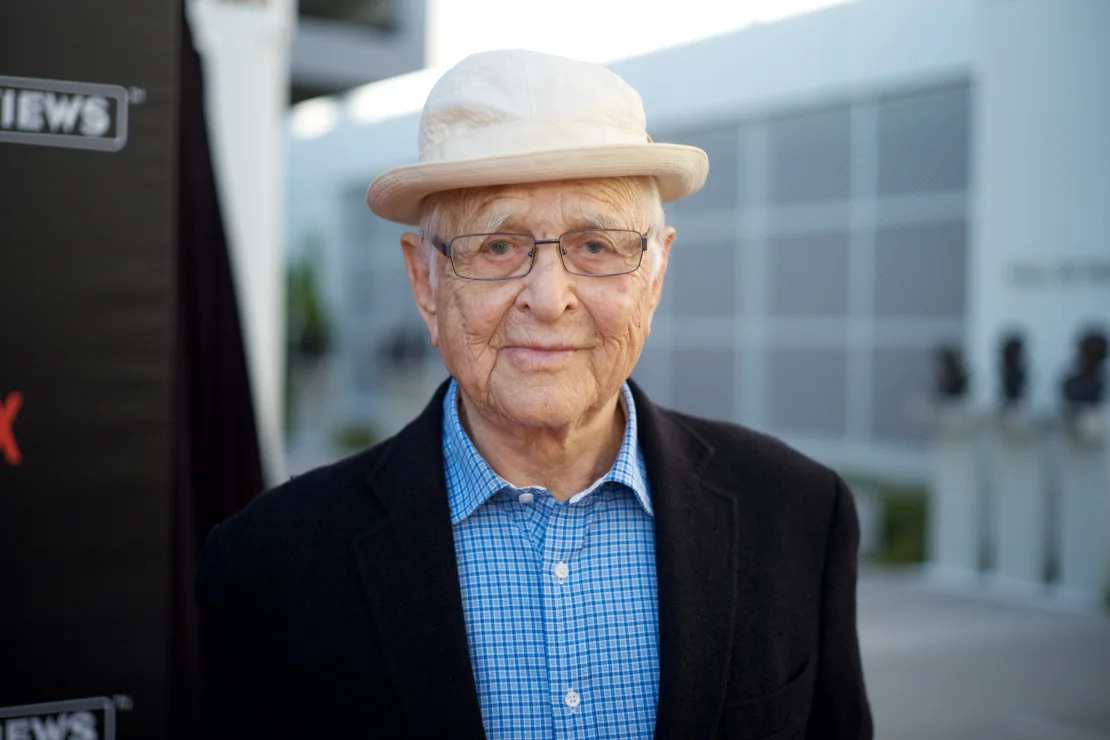Norman Lear, the television writer and producer, whose wildly successful TV sitcoms including “All in the Family” and “The Jeffersons” showed that it was possible to be topical, funny and immensely popular, died on Tuesday at his home in Los Angeles at age 101.
A spokeswoman for the family, Lara Bergthold, confirmed the death. “Norman lived a life of curiosity, tenacity, and empathy. He deeply loved our country and spent a lifetime helping to preserve its founding ideals of justice and equality for all,” his family said. “He began his career in the earliest days of live television and discovered a passion for writing about the real lives of Americans, not a glossy ideal. At first, his ideas were met with closed doors and misunderstanding. However, he stuck to his conviction that the ‘foolishness of the human condition’ made great television, and eventually he was heard.”
Join our WhatsApp ChannelLear reigned at the top of the television world through the 1970s and into the early ’80s, leaving a lasting mark with shows that brought the sitcom into the real world. He introduced political and social commentary into situation comedy with “All in the Family” and other shows, proving that it was possible to be topical as well as funny while attracting millions of viewers
“The Jeffersons” looked at the struggles faced by an upwardly mobile Black family; a very different Black family on “Good Times” dealt with poverty and discrimination. The protagonist of “Maude” was an outspoken feminist; the heroine of “Mary Hartman, Mary Hartman” was plagued by all manner of modern-day problems, not least her own neurosis.
“You looked around television in those years,” Mr. Lear said in a 2012 New York Times interview, referring to the middle and late 1960s, “and the biggest problem any family faced was ‘Mother dented the car, and how do you keep Dad from finding out’; ‘the boss is coming to dinner, and the roast’s ruined.’ The message that was sending out was that we didn’t have any problems.”
In his 2014 memoir, “Even This I Get to Experience,” Lear attributed the success of his series to stories drawn from the real experiences of his writers that lent to the authenticity of the characters they developed. “The audiences themselves taught me that you can get some wonderful laughs on the surface with funny performers and good jokes,” he wrote, “But if you want them laughing from the belly, you stand a better chance if you can get them caring first.”
Lear’s shows sent different messages, far more in tune with what was actually happening in those turbulent times. His crowning achievement was “All in the Family,” and his greatest creation was Archie Bunker, the focus of that show and one of the most enduring characters in television history.
An unapologetic bigot who was seemingly always angry at one minority group or another (and usually at least one family member as well), Archie, memorably portrayed by Carroll O’Connor, was also, with his malaprops, his mangled syntax and his misguided enthusiasm, strangely likable.
A Sitcom Shockwave
“All in the Family” sent a shock through the sleepy world of the sitcom with one tart, topical episode after another from the moment it premiered on CBS on the 12th of January, 1971.
Even now, more than 50 years later, some critics say that this date should live in infamy, that ABC was right when it turned down the show out of fear that it would offend too many people. Archie, in this view, was a fanatic who made narrow-mindedness seem appealing.
But Lear, who adapted “All in the Family” from a British sitcom and based Archie in part on his father, saw it differently. “I’ve never known a bigot who didn’t have something endearing,” he once said.
Lear went on to create a television empire and to become politically active, notably with his founding of the liberal advocacy organization People for the American Way, the kind of organization that Archie Bunker would have enjoyed sneering at.
Archie had choice words for all races, creeds and sexual orientations (except his own), and he didn’t spare his family. His sweet and dignified wife, Edith (Jean Stapleton), was a “dingbat”; his daughter, Gloria (Sally Struthers), was “a weepin’ Nellie”; his liberal son-in-law, Michael Stivic (Rob Reiner), was a “meathead” and, on occasion, a “dumb Polack.” Strictly a law-and-order guy, Archie also voiced strong reservations about what he saw as campus subversives, welfare chiselers and bleeding hearts.
Such pronouncements were scandalous in the prime-time television world of the day. But Mr. Lear had found a gold mine.
“All in the Family” ran until 1979 and dominated the ratings for most of that time. More important, it established a template for television comedy by mixing political and social messages, as well as moments of serious drama, with laughter.
The Lear philosophy was further developed in two shows built around characters who originally appeared on “All in the Family”: “Maude” and “The Jeffersons.”


















Follow Us